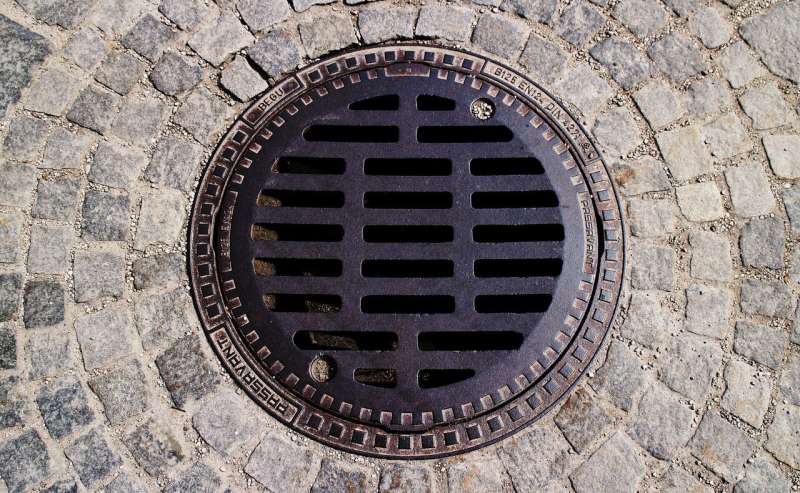An early warning system: Testing wastewater for COVID-19

Wastewater samples prove everyone infected with COVID-19 'poops' out a little of the rapidly evolving disease. While researchers say the wastewater is not known to be infectious, it does show that COVID-19—the root cause of 2.7 million deaths worldwide—is widespread even in communities with low confirmed case rates.
"What ends up in the wastewater is degraded and is very unlikely to actually infect people, we believe," said Christopher DeGroot, professor at Western Engineering. "That said, wastewater surveillance can serve as an early warning system for COVID-19 outbreaks in our communities—making it vitally important to public health and safety."
DeGroot leads a study collecting wastewater samples from a number of strategic locations in London, Ont. and analyzed at Western's Imaging Pathogens for Knowledge Translation (ImPaKT) Facility.
Wastewater surveillance is a proven method for mapping community infection rates when result wait times for COVID-19 nasal swab tests are lengthy or even delayed.
Part of the Ontario government's $12-million investment in wastewater surveillance, the Western-led initiative, a continuation of sampling collected by University of Windsor, launched in November 2020 with weekly local collection and testing, ramping up recently to three times a week.
"We're detecting leftover RNA (ribonucleic acid) fragments in the wastewater that come from infected individuals," said DeGroot. "Those fragments are readily concentrated and detected, but don't pose a public health risk."
Ribonucleic acid, which can be used for vaccine development, carries genetic information in certain viruses, especially in retroviruses like HIV.
DeGroot says results from wastewater samples which cover asymptomatic and symptomatic infected people should precede reported cases and clinical data collected by the Middlesex-London Health Unit at least by a few days, maybe even a week, serving as an effective warning sign for future outbreaks in the city.
"We'll be watching very closely for any increase in the viral load showing up in the wastewater, especially as we start to reopen the city and vaccines are being distributed," said DeGroot. "We think this is a really valuable tool."
Ontario is not alone in wastewater surveillance. Netherlands is currently sampling more than 300 sewer drainages across the country and is using the data with other public health screening tools to identify early community spread of COVID-19.
As vaccine distribution continues to expand across the province, it is important that efficacy against the growing number of variants of the virus is also monitored.
"We are specifically monitoring mutations of the virus too, just as public health officials are watching that vaccines are actually effective against them," said DeGroot.
While the Western study is led by DeGroot at Western Engineering and analyzed by virologists like Eric Arts at the Schulich School of Medicine & Dentistry, the overall wastewater surveillance initiative is truly interdisciplinary.
"It is remarkable how an individual with COVID-19 sheds SARS-CoV-2 into their feces, which mixes with the waste of others within the community and is ultimately sampled at your neighborhood wastewater treatment plant," said Arts, Canada Research Chair in HIV Pathogenesis and Viral Control. "SARS-CoV-2 is non-infectious in this diluted wastewater but we can monitor its remnants and get an accurate prediction of the COVID-19 caseloads in that neighborhood, even before people get tested."
Western is also working on similar wastewater and environmental projects related to COVID-19 with Saverio Stranges from Schulich, Lauren Cipriano from the Ivey Business School, Jason Gilliland from Western's Human Environments Analysis Laboratory (HEAL), Franco Berruti from the Institute for Chemicals and Fuels from Alternative Resources (ICFAR), and in collaboration with Trojan Technologies and USP Technologies in London.
"The pandemic has forced us to work physically distant from one another but it's also brought us closer together. This is very interdisciplinary work with all kinds of people working on it from across campus. It's really interesting how it all came together and it's an honor to be working on something so important," said DeGroot.



















